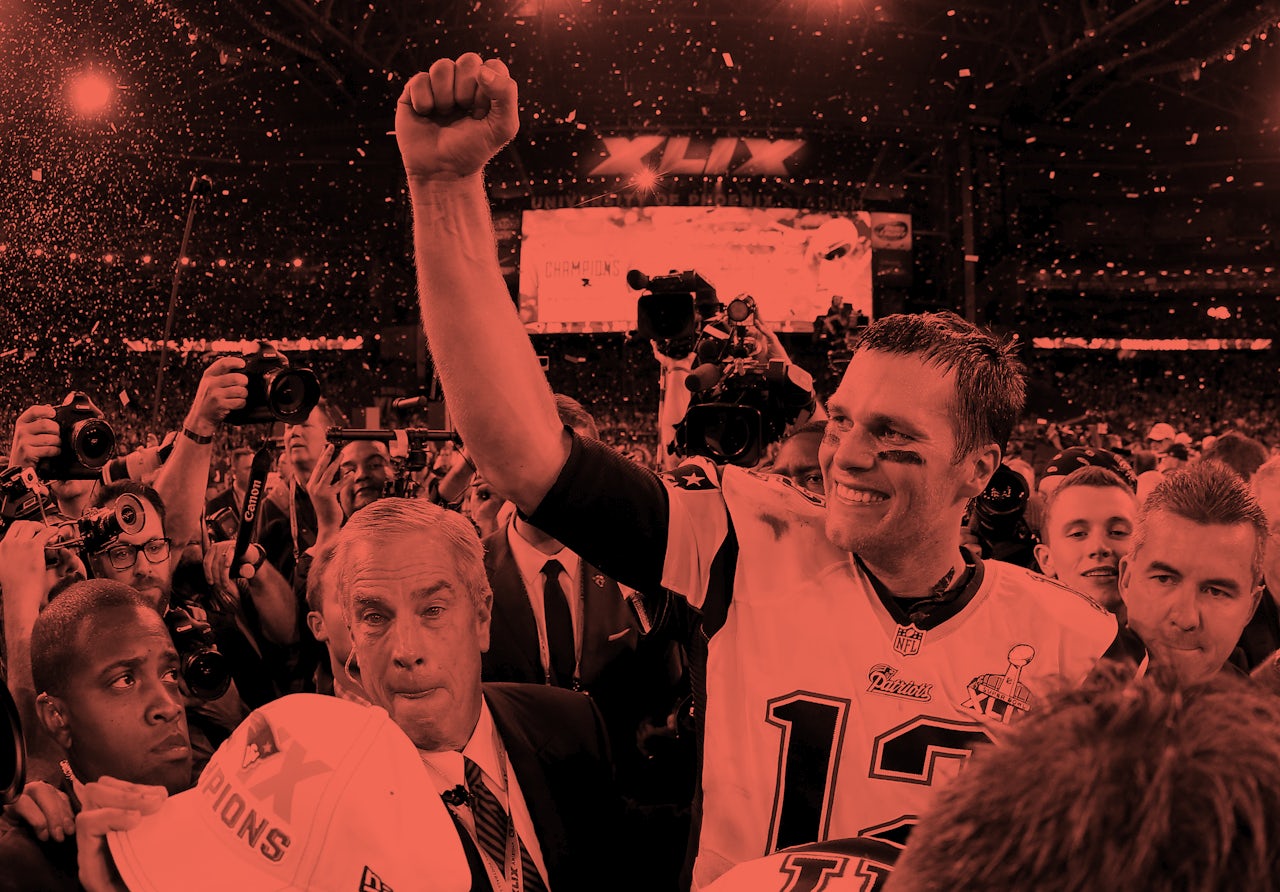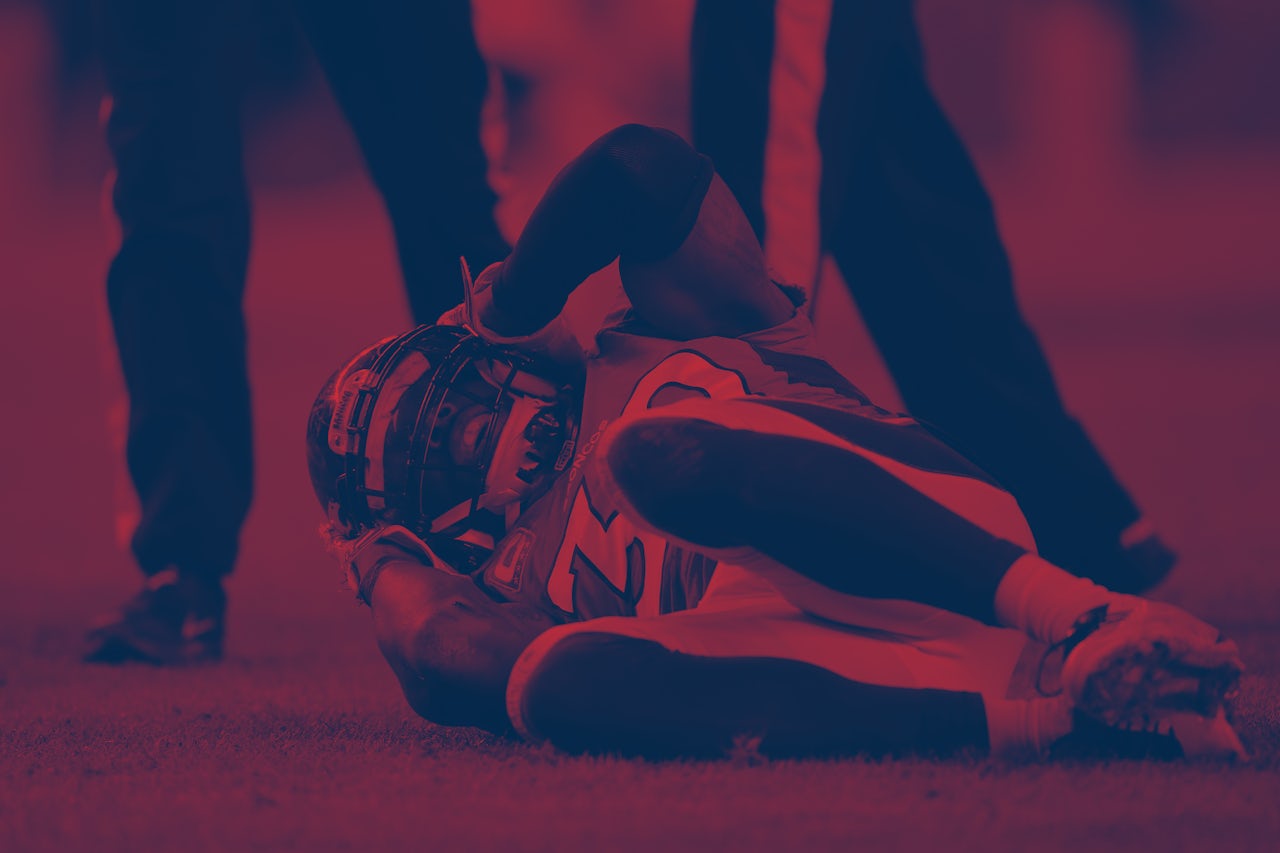New England Patriots quarterback Tom Brady today released his first book, The TB12 Method. Part memoir, part training manual, the book offers to let readers in on the secrets that have helped Brady “sustain peak performance” over the course of his football career. (The key, according to Brady, is to focus on the all-too-often forgotten quality of muscle pliability.) Along with Brady’s personal insights and anecdotes, the book includes standard fitness topics like workout methods, hydration and nutrition tips, and recipes.
One chapter, however, titled “Brain Training, Rest, and Recovery,” promises to be particularly valuable coming from the top athlete in a sport that has recently raised warning flags for putting its participants at greater risk of chronic traumatic encephalopathy, or CTE, a degenerative brain disease caused by repeated blows to the head. A shocking study published in the Journal of the American Medical Association in July found that of 111 donated brains of former NFL players found 110, or 99 percent, had CTE, which can only be diagnosed via a post-mortem exam. For his part, Brady has been evasive when asked about his concussion history. In May, Brady’s wife Gisele Bundchen commented that he sustained a concussion in 2016 and “has concussions pretty much every day.” When Brady was asked about the comments in August he replied, “You know, I don't want to get into things that happened in my past, certainly medical history and so forth. I don't really think that's anybody's business.”
Unfortunately, Brady’s short chapter on the brain neglects to mention concussions or CTE. Rather, it focuses almost entirely on having “the right mindset,” “keeping positive,” and doing web-based exercises (conveniently found on his own website) to train the brain’s attention span and processing speed. In general, Brady glosses over the dangers of his sport. As he writes in the book’s introduction, in response to the claim that injuries are an inevitable part of playing sports, “I believe many of those ‘inevitable’ injuries could be avoided,” although he doesn’t clarify to which specific injuries he is referring.
Brady addressed the connection between his supposed lack of concussions and the training techniques he promotes in the book clear during a Monday interview on CBS This Morning. When host Norah O'Donnell asked him if he worries about concussions, he said: "I don't worry about them, no. I'm not oblivious to them. I mean, I understand the risks that come with the contact sports and the physical nature of our game. I try to take these preventative approaches to limit, you know, whatever ramifications those may cause. Now, do I have all the answers for those? Absolutely not. I don't think anyone does. But if I take this proactive approach to it, I do feel like, you know, all these other treatments that I've done on my body have really worked. And I do want to continue to think about my head the same way.”
Several former professional football players have spoken out about the risks of CTE. Back in January, legendary multi-sport professional athlete Bo Jackson said that knowing what he knows now about CTE and head injuries in football, he would have never started playing the game. “Even though I love the sport, I’d smack them in the mouth if they said they wanted to play football,” he said, referring to his kids.
The risk isn’t just for professional players. Of the non-professional football players whose brains were examined as part of the July 2017 CTE study, 21 percent of those who participated only through high school and 91 percent of those who participated through college showed evidence of CTE.


